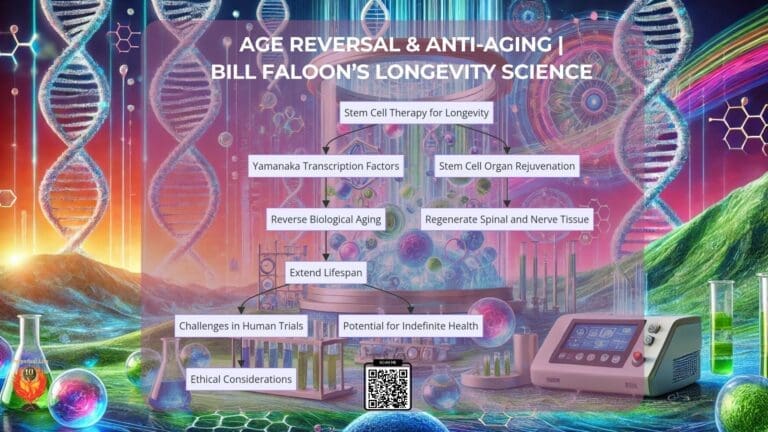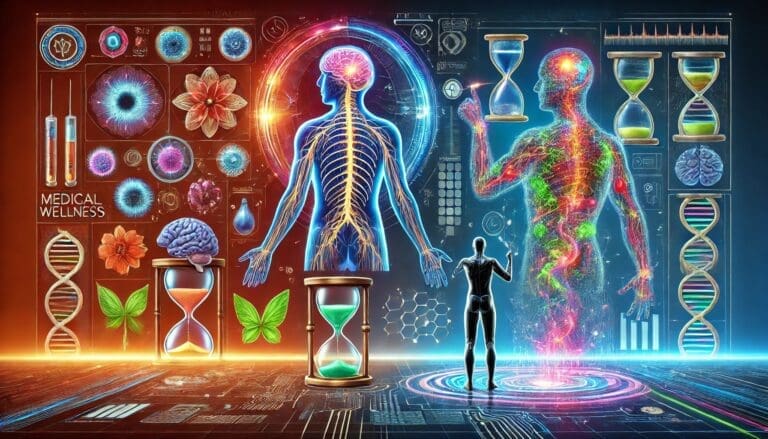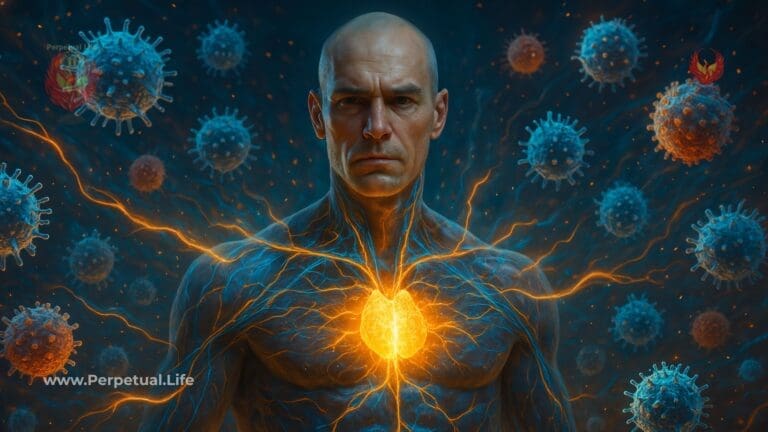March 28th 2024, Presenting Ben Azadi, Dr. Joseph Purita and Bill Faloon
Ben Azadi presents Keto Flex, Intermittent Fasting and Ketosis. Ben has been the go-to source for intermittent fasting and the ketogenic diet since 2013. Ben is the founder of Keto Kamp; a global brand bringing awareness to ancient healing strategies such as the keto diet and fasting. Ben is a keynote speaker who delivered a keynote lecture for Ketocon 2022, 2023, and 2024; and he’s been featured in Forbes, LA Weekly, Disrupt Magazine, NY Times Mag, LA Entertainment Weekly and other publications of experience in the health industry, and he’s the author of four bestselling books, including his latest, Keto Flex. Dr. Joseph Purita presented on Intermittent Hypoxia therapy and mitochondrial health Dr. Purita graduated from Georgetown University Medical School and served his surgical internship at the University of Florida Medical Center. Following completion of a residency in orthopedic surgery at University of Miami-Jackson Memorial Hospital, where he served as chief administrative resident, Dr. Purita joined the Boca Raton Orthopedic Group in 1981. He is a pioneer in the use of Stem Cell and Platelet Rich Plasma for orthopedic conditions. Dr. Purita has lectured internationally on five continents regarding the healing effects of stem cells and has been instrumental in helping some countries design their policies concerning the use of regenerative medicine effectively bringing this unique and advanced practice to more practices throughout the world. Dr. Purita’s passion lies in teaching and advancing regenerative medicine techniques and procedures that improve patients’ lives. Our founder, Bill Faloon provided us with A New Age Reversal Update.
- 00:00:00 Neal VanDeRee welcomes viewers to the Transhumanist church and expresses their shared goal of achieving super-longevity. He then announces an upcoming Global Cryonics Summit in Miami on July 20th and 21st, where attendees can connect with industry veterans and learn from leaders in the cryonics industry. Speakers at the event include Bill Faloon, Robin Hansen, Ashwin DeWolf, and Kai Mills. The summit offers action-oriented presentations, discussions, and workshops. Tickets can be purchased using the provided QR code or through the cryosphere’s website. The church also holds monthly services, with the next one being in Zoom on April 25th, featuring an OsteoHealth presentation by Kyle Zagrodsky. Additionally, there is a People Unlimited super longevity event taking place that weekend, which attendees can join in person or via Zoom. New church attendees are welcomed and given a necklace that grants them front-of-the-line access to the church’s buffet. The church follows the teachings of Nicoli Fedorov, Arthur C. Clarke, and believes in making death optional through their actions. Donations are appreciated and can be made online or in person. The event concludes with three speakers and a question-and-answer session after each speaker.
- 00:05:00 Neal VanDeRee introduces Ben Azadi, a functional health practitioner with over 16 years of experience and the author of four best-selling books on health and intermittent fasting. Azadi gifts his books to the audience and begins his talk by discussing the importance of metabolism and how it transforms food, oxygen, and light into energy. He shares statistics from the CDC and cancer.org about the prevalence of metabolic diseases such as cancer, diabetes, and heart disease. Azadi then discusses Ancel Keys, a scientist who in the 1950s hypothesized that heart disease is caused by consuming cholesterol and saturated fat. Keys conducted a study and cherry-picked data from seven countries that fit his hypothesis, leading to the government’s promotion of the low-fat diet. Azadi argues that cholesterol is not the cause of heart disease but rather a response to inflammation and is essential for building cells, membranes, and brains. He also mentions his friend, Dr. Philip Ovadia, a heart surgeon, and his book “Stay Off My Operating Table.”
- 00:10:00 Ben Azadi discusses the root cause of heart disease being damage to the blood vessel wall, specifically due to insulin resistance and toxins like smoking. He emphasizes the importance of testing for fasting insulin to determine insulin resistance. The speaker also challenges the common belief that cholesterol is the primary cause of heart disease and argues that it is essential for the body to function properly. He encourages following a ketogenic or carnivore diet to increase cholesterol levels and improve overall health. The speaker also mentions an agenda behind prescribing statins to lower cholesterol levels.
- 00:15:00 Ben discusses the negative impact of antiseptic mouthwash on health. He explains that disrupting the oral microbiome shuts down nitric oxide production, leading to increased blood pressure and eliminating the cardioprotective benefits of exercise. Ben also mentions the detrimental effects of fluoride toothpaste, proton pump inhibitors, and antacids on the body’s microbiome. Ketones, a protective molecule for the heart, are introduced as an alternative, as they signal the creation of more mitochondria and improve energy production. Ben notes that only a small percentage of Americans are metabolically healthy and emphasizes the importance of addressing this issue to prevent obesity and related health problems.
- 00:20:00 Ben Azadi shares his personal story of being obese and mentally unhealthy, emphasizing that weight is a symptom, not the root cause of health issues. He then introduces the concept of metabolic health and the importance of restoring it to achieve weight loss. Azadi mentions his book, “Keto Flex,” which focuses on metabolic flexibility and burning fat and sugar. He also discusses the root cause of metabolic health issues: toxins. He shares his own experience with heavy metal toxicity and the importance of avoiding plastic and thermal receipts due to their high BPA content. Azadi emphasizes that weight gain is not solely due to caloric intake but rather environmental factors.
- 00:25:00 Ben discusses how toxins, specifically obesogens and diabetogens, contribute to weight gain and health issues. Obesogens are chemicals that activate the P GMA pathway, which tells the body to store toxins in fat cells for survival. Diabetogens, on the other hand, interfere with the beta cells in the pancreas that produce insulin. Ben mentions several sources of these toxins, including heavy metals from silver amalgam fillings, lead from houses built before 1978, and household chemicals. They also discuss the dangers of seed oils and vegetable oils, which are high in unstable polyunsaturated fats that turn rancid when introduced to high heat and create inflammation in the body. Ben advises to avoid these toxins to improve health and aid in weight loss.
- 00:30:00 Ben Azadi discusses the importance of replacing polyunsaturated fats with more stable options like saturated and monounsaturated fats. He suggests using oils such as olive oil, avocado oil, butter, ghee, and animal fats for cooking, and fruit-based oils for salad dressings and dips. Azadi shares his experience of asking for these healthier options when dining out by telling servers he’s allergic to vegetable oils. He also introduces a “seed oil allergy card” for those who feel uncomfortable doing so. The conversation then shifts to glyphosate, with Azadi explaining the potential health risks associated with this herbicide, including its correlation with various diseases and its ability to drive heavy metals deeper into the body. He emphasizes the importance of consuming organic and non-GMO foods, particularly when it comes to heavily sprayed crops like corn, soy, wheat, and coffee.
- 00:35:00 Ben Azadi shares his personal experience with diabetes and its complications, emphasizing that medication does not exempt individuals from the associated health risks. He explains that while medication may improve the symptoms of high blood sugar, the root cause of diabetes – high insulin and cell membrane inflammation – is often overlooked. Ben mentions a study that shows a correlation between an A1C level of 7.5% or higher and a reduced lifespan, with each year at that level taking 100 days off one’s life. He also discusses the destructive effects of glucose on the body and the importance of maintaining optimal sugar levels in the bloodstream. Ben then uses an analogy to explain the consequences of frequent insulin production and insulin resistance, suggesting that taking a break from consuming carbohydrates, through methods like the keto diet and fasting, can help “dial down the music” and improve insulin sensitivity.
- 00:40:00 Ben discusses the benefits of the keto diet in reversing type two diabetes and the contrasting interests of big pharmaceutical and food industries. A study showed that 53% of patients achieved remission and 177% remission without medication after two years on a low-carb keto diet. The speakers criticized a recent American Heart Association abstract claiming intermittent fasting increases mortality by 91%, labeling it as misleading and based on unreliable data. They argued that symptoms of illness are not the problem but rather the body’s way of communicating and that a “cured patient is a lost customer” for the healthcare industry. The speakers emphasized the importance of paying attention to the subconscious mind, which is influenced by mainstream media and commercials, and criticized the high percentage of cable TV commercials funded by big pharma and fast food industries in the United States.
- 00:45:00 Ben discusses the influence of media and nutrition on health. They criticize the mainstream nutrition advice, which they believe encourages the consumption of unhealthy foods, and suggest doing the opposite for better health. They also emphasize the importance of positive thoughts and gratitude in maintaining good health. Ben mentions a study on vitamin G, which they claim is the practice of gratitude and has been shown to have numerous health benefits, including lowering blood pressure and blood sugar levels. They encourage the audience to practice gratitude daily as a way to improve their health and overall well-being.
- 00:50:00 Ben Azadi discusses the importance of gratitude and faith in maintaining good health. He also answers various questions from the audience regarding topics such as EPOb blood tests, the carnivore diet, and the role of barley in reducing C-reactive protein. Regarding EPOb tests, Azadi suggests looking at the results in the context of a full cholesterol panel and considering inflammatory markers. He is a fan of the carnivore diet for its short-term health benefits, including gut restoration and inflammation reduction, but does not believe it is suitable for long-term use. Azadi also mentions that he had positive results from following a carnivore diet for 90 days and had a cardiologist review his health data. He has not heard of barley reducing C-reactive protein but suggests focusing on a clean diet and avoiding toxins for optimal results. Azadi is a proponent of using ketone supplements, particularly in the morning before a workout, to support the body’s production of ketones and aid in metabolic change. He recommends HVMN’s Ketone IQ product. Lastly, Azadi explains that he believes the keto diet is superior to diets that exclude meat due to the nutritional benefits of meat and the body’s ability to produce ketones from it.
- 00:55:00 Ben Azadi discusses various diets and their short-term and long-term benefits. Azadi explains that while all diets can work, many people have compromised digestive systems, particularly due to glyphosate, which makes vegan diets less effective for them. He suggests that keto and carnivore diets can help improve gut health, but once it’s fixed, individuals can return to a vegan diet. The conversation then shifts to intermittent fasting, specifically the benefits of eating earlier in the day for autophagy and cell repair. Michelle, a viewer, shares her experience of self-diagnosing leaky gut syndrome and curing it through a carnivore diet and extended fasting. Ben emphasizes the importance of stressing the gut to promote diversity and improve overall health.
01:00:00 – 02:00:00
Ben Azadi discusses various health and longevity-related topics, including the flaws in Blue Zone studies, the significance of goat and sheep Dairy, mitochondrial health, intermittent hypoxia therapy, and the potential of Yamanaka transcription factors in reversing aging. Ben criticizes the Blue Zone studies for their commonalities, such as community and gratitude, but argue that genetics and consumption of medium chain triglycerides found in goat and sheep Dairy play a role in their longevity. They also discuss the importance of mitochondria, the powerhouses of the cell, and their role in energy production and overall health. Neal VanDeRee introduces Dr. Joseph Purita, a pioneer in the use of stem cells and platelet-rich plasma for orthopedic conditions, who discusses intermittent hypoxia therapy and its potential benefits, including the activation of a mitochondrial rejuvenating pathway and the production of antioxidants, reduction of inflammation, and promotion of angiogenesis. The speakers also touch on the potential of Yamanaka transcription factors in reversing aging and improving organ function by reprogramming old cells into pluripotent stem cells, which could lead to significant medical advancements.
- 01:00:00 Ben discusses the flaws in the Blue Zone studies and the significance of goat and sheep Dairy in promoting longevity. Ben argues that the Blue Zone studies have commonalities such as community and gratitude, but they also criticize the notion that people in these areas live longer by consuming less meat and more plants. They believe that genetics and the consumption of medium chain triglycerides found in goat and sheep Dairy play a role in their longevity. Ben also discusses the issue of rancid fish oil and the potential dangers of consuming large amounts of Omega-3 fatty acids from fish oil supplements. They recommend using cold-pressed organic seed oils instead. Ben also touch on the benefits of castor oil for detoxification and skin health.
- 01:05:00 Ben Azadi shares his personal experience with high cholesterol levels and the impact of a carnivore diet on his cholesterol levels. He mentions that his total cholesterol was 290 before starting the carnivore diet, which increased to 434 after 90 days. Despite the high total cholesterol, his LDL particles were large and fluffy, and his HDL, triglycerides, insulin, and other health markers were optimal. Azadi emphasizes the importance of testing and making individual decisions regarding Statin use and CoQ10 supplementation. In another question, Azadi discusses the benefits of fish oil, mentioning its anti-inflammatory properties, but also expressing concerns about long-term use due to potential side effects. He suggests getting fish oil from the fish itself rather than supplements. Lastly, Azadi answers a question about dental care and recommends visiting a biological dentist for safe mercury filling removal, detoxification, and appliance therapy to improve facial structure and straighten teeth.
- 01:10:00 Dr. Joseph Purita is introduced as a graduate of Georgetown University Medical School and a pioneer in the use of stem cells and platelet-rich plasma for orthopedic conditions. He has lectured internationally on regenerative medicine and is now presenting on intermittent hypoxia therapy and mitochondrial health. Dr. Purita explains that mitochondria, the powerhouses of the cell, are crucial for overall health and aging. He discusses the anatomy of mitochondria and their role in energy production, comparing them to a chloroplast in a plant. Mitochondrial DNA is different from the rest of the DNA in the body, and it is only inherited from the mother. Dr. Purita also mentions that mitochondria are sensitive to light and will be the topic of a future talk on photobiomodulation.
- 01:15:00 Dr. Purita discusses the importance of mitochondria in the body and how certain diseases, such as Alzheimer’s, Parkinson’s, and ALS, are related to mitochondrial dysfunction. He also touches on the role of heat and cold shock proteins and free radicals in cell function. Dr. Purita mention that antioxidants, such as dark chocolate, can help neutralize free radicals, and they discuss the importance of enzymes called sirtuins, which help regulate gene expression, mitochondrial biogenesis, and energy production. The speakers suggest that intermittent fasting, calorie restriction, exercise, and nicotinamide adenine dinucleotide (NAD) supplementation can stimulate sirtuins and improve overall health.
- 01:20:00 Dr. Purita discusses the importance of NAD (Nicotinamide Adenine Dinucleotide) and ATP (Adenosine Triphosphate) in the body, particularly for energy production and DNA repair. NAD is essential for DNA repair and energy production, and its levels decrease as we age. ATP, an energy carrier, is used for energy storage, utilization, and the regeneration of ATP. The body produces ATP through two methods: anaerobic (without oxygen) and aerobic (with oxygen). While the aerobic method produces more ATP, it also generates more oxidative stress. Dr. Purita also mention the significance of mitochondria in energy production and cell health, and the potential for stem cells to transfer healthy mitochondria to sick cells. He also discusses the importance of recycling mitochondria and the benefits of the supplement MOFAS (Mitochondrial Fusion and Fission Inhibitor) for mitochondrial health. In a surprising turn, Dr. Purita then introduces the concept of hypoxia (low oxygen levels) as a potential anti-aging factor, citing the bowhead whale as an example of an animal with exceptional longevity that lives in areas with low oxygen levels.
- 01:25:00 Dr. Purita discusses the benefits of intermittent hypoxia, a practice where individuals expose themselves to periods of low oxygen levels followed by recovery periods. He explains that this practice can activate a mitochondrial rejuvenating pathway and reference research on how high-altitude communities, which experience low oxygen levels, have longer average lifespans. Dr. Purita also mention that the Nobel Prize in 2019 was awarded for research on how cells sense oxygen. Intermittent hypoxia is different from chronic hypoxia, which is associated with various diseases, and the speakers discuss the hormesis effect, which suggests that a low-stress dose can benefit cells and promote repair, while high stress can cause damage. He also references studies that show intermittent hypoxia can increase telomerase, which makes telomeres longer, and improve various health issues, but can also promote invasion and metastases.
- 01:30:00 Dr. Purita discusses the importance of intermittent hypoxia or oxygen deprivation in inducing gene expression, metabolic changes, and regenerative processes. Hypoxia-inducible factors (HIFs) are transcription factors that respond to low oxygen levels by activating genes that produce antioxidants, reduce inflammation, and promote angiogenesis, the growth of new blood vessels. HIFs are crucial in the field of epigenetics, which deals with manipulating genes to achieve desirable outcomes. In the cytoplasm, HIFs bind to oxygen and remain inactive, but when oxygen levels are restricted, they enter the nucleus and give directions to genes, leading to various beneficial effects, such as angiogenesis, the production of red blood cells, and the formation of proteins. Additionally, HIFs can also make vascular endothelial growth factor, which helps create new blood vessels. Hem oxygenase A1, an important enzyme, can have profound effects on the body by generating new tissue and aiding in the healing process.
- 01:35:00 Dr. Purita discusses the benefits of intermittent hypoxia on the body, focusing on its impact on inflammation, the p53 gene, and stem cells. Intermittent hypoxia, or periods of low oxygen intake, can stimulate the production of carbon monoxide, which, in moderate doses, can be beneficial for the body. The p53 gene, a tumor suppressor gene, is discussed as a potential area of improvement, as humans have fewer copies of it than elephants, leading to a higher risk of cancer. Nitric oxide, another important molecule, is mentioned for its role in releasing stem cells and repairing damaged cells. Intermittent hypoxia also stimulates the production of very small embryonic-like stem cells, which can repair various types of cells and potentially reverse immune system issues. Additionally, intermittent hypoxia can help with weight loss by decreasing leptin levels and sensitivity, and it can increase mitochondrial biogenesis. Practical applications of intermittent hypoxia include using blood pressure cuffs for low-intensity exercises, which can mimic the effects of high-intensity exercises and lead to increased growth hormone production.
- 01:40:00 Dr. Purita discusses the benefits of low-intensity exercise and hypoxia therapy. He explains that low-intensity exercise increases IGF-1 and decreases myostatin, leading to muscle growth. He also discusses the importance of intermittent hypoxia therapy, which involves breathing a lower concentration of oxygen to stimulate the production of brain-derived neurotrophic factor and improve brain function. Dr. Purita mentions using a machine to administer systemic hypoxia therapy and the benefits of getting oxygen levels below 90%. He also shares an Israeli discovery of using intermittent oxygen exposure to increase telomere length, which is a less expensive alternative to hyperbaric oxygen therapy. Dr. Purita briefly touches on the use of stem cells, photobiomodulation, and the connection between mitochondrial DNA and ALS. A question from the audience about the use of light therapy, specifically red light, is addressed, and it is explained that the 660 nanometer wavelength stimulates cytochrome C oxidase to produce more ATP. Dr. Azadi also mention the benefits of hot and cold therapy for protein folding in the cell.
- 01:45:00 Dr. Azadi discuss various health and longevity-related topics. Dr. Joseph Purita talks about the benefits of hyperbaric oxygen therapy, which includes increasing oxygen into the tissue and stimulating bone marrow to produce eight times more stem cells. Ben Azadi mentions the potential use of hyperbaric oxygen therapy for astronauts and its ability to mimic hibernation. Bill Faloon shares his personal experience with Dr. Purita, who helped him overcome degenerative conditions without surgery or cortisone injections. Bill Faloon also mentions a high-end conference where scientists discussed emerging technologies that could lead to radical life extension before anticipated. Additionally, Bill Faloon is engaged in research using transcription factors to reverse degenerative aging, and a recent peer-reviewed study published by the National Library of Medicine supports this approach, showing a 109% increase in remaining lifespan in live mice.
- 01:50:00 Bill Faloon discusses the potential of Yamanaka transcription factors in reversing aging and improving organ function. These proteins can reprogram old cells into pluripotent stem cells, theoretically regenerating tissues and extending life. The research, which has reached peer-reviewed publication status, could lead to significant medical advancements, including the reversal of epigenetic aging and the elimination of heart, liver, and kidney failure. The objective is to deliver these factors into old monkeys and eventually humans by 2027. The focus is on partial cell reprogramming using only three out of the four Yamanaka factors (OS, OCT4, and SOX2) to maintain cellular identity and avoid malignancy concerns. The OS transcription factors have already shown promising results in animal models, and researchers are working on making it work in nonhuman primates.
- 01:55:00 Bill Faloon discusses a study published in a peer-reviewed journal about the use of OS transcription factors to improve health and extend lifespan in mice. The researchers found that intermittently introducing OS resulted in significant improvements, including living longer and reversing epigenetic age. Despite some mistakes made in the study, remarkable results were still achieved, and research is ongoing to make the process more efficient. The potential implications for humans could mean an extra 5 years of life, and OS may even reverse age-associated diseases. The ultimate goal is to enable people to live forever, and research is focusing on reversing biological age.
02:00:00 – 02:10:00
Bill Faloon explores potential interventions to reverse aging, including the use of Essentialenes (OS) and young plasma. They discuss the challenges of delivering OS efficiently and safely, as well as the importance of ongoing research. Bill Faloon also provide context on aging research history, including the work of Dr. Shinya Yamanaka and the recent FDA approval of Crispr technology. They express interest in the potential benefits of young plasma for aging, but caution that more research is needed to determine effective administration methods and measure epigenetic age and conventional markers. Bill plans to conduct research on old monkeys using young plasma from pigs and invite comments on therapeutic plasma exchanges and the latest work on plasma transfusions.
- 02:00:00 Bill discusses the potential for reversing aging through exogenous administration of Ossentialenes (OS), a substance that can boost epigenetic age and reverse aging. They mention the challenges of delivering OS into the body efficiently and safely, and the importance of ongoing research in this area. Bill Faloon also provide context by discussing the history of aging research, including the groundbreaking work of Dr. Shinya Yamanaka, and the recent FDA approval of Crispr technology for gene editing. They also mention the involvement of billionaires in funding similar research and their shared goal of making age reversal available in their lifetime.
- 02:05:00 Bill Faloon discusses various potential health interventions and their current understanding of related research. One question asks about data on Yamanaka factors and ALS, to which Bill expresses interest but caution that more research and sophisticated gene editing processes may be necessary before any definitive conclusions can be drawn. Another question inquires about the use of Alpha ketoglutarate to reverse DNA aging, with Bill expressing reservations due to inconsistent data and potential risks. A third question asks about Chlorine dioxide and its potential benefits for controlling fungus and parasites, with Bill again expressing a need for more consistent data before making a recommendation. Bill Faloon also discusses the potential benefits of young plasma from young donors, with ongoing research in this area. Bill also mentions a recent study showing remarkable reversals of epigenetic age in the heart, liver, and kidneys using young plasma from pigs, and plan to conduct research on old monkeys using the proprietary young plasma fraction concentrate from pigs. Bill also mention their involvement in other related studies and invite comments on therapeutic plasma exchanges and the latest work on plasma transfusions.
- 02:10:00 Bill Faloon discusses the potential benefits of using young plasma in older individuals based on certain studies. There are various methods of administering young plasma, such as plasmaferesis, where old plasma is removed and replaced with albumin and immunoglobulins, or simply replacing old plasma with fresh frozen young plasma. Bill Faloon emphasizes the need for research to determine which methods are effective, suggesting DNA methylation tests to measure epigenetic age and conventional markers like fasting insulin, lipids, and inflammatory markers. The goal is to find if young plasma can reverse pathological markers in the blood associated with aging, even if the DNA methylation age doesn’t change significantly. The presentation is recorded, and attendees are encouraged to share it with loved ones and join the Zoom event next month.
Summarized by AI summarize.tech





